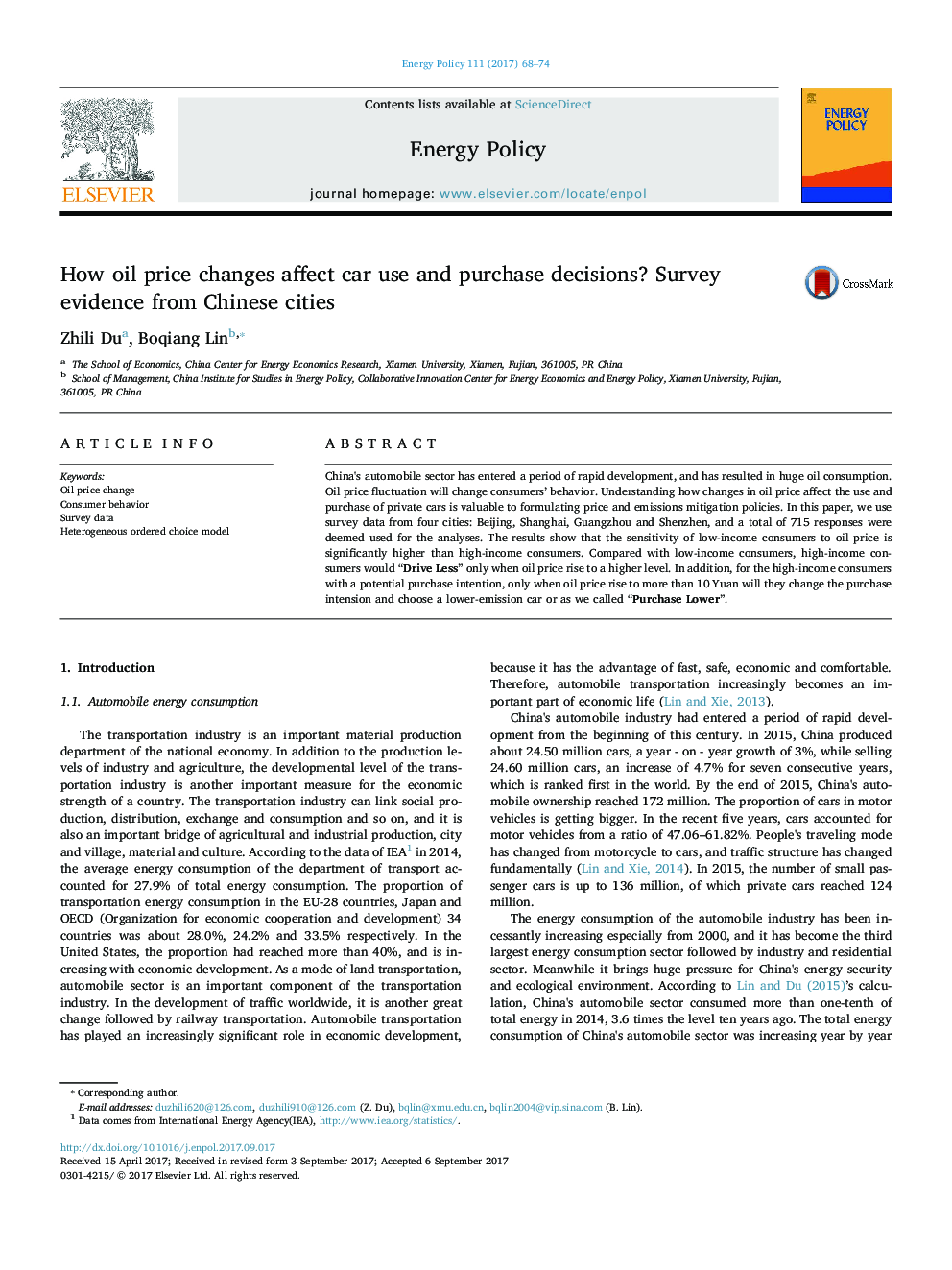| Article ID | Journal | Published Year | Pages | File Type |
|---|---|---|---|---|
| 5105487 | Energy Policy | 2017 | 7 Pages |
Abstract
China's automobile sector has entered a period of rapid development, and has resulted in huge oil consumption. Oil price fluctuation will change consumers' behavior. Understanding how changes in oil price affect the use and purchase of private cars is valuable to formulating price and emissions mitigation policies. In this paper, we use survey data from four cities: Beijing, Shanghai, Guangzhou and Shenzhen, and a total of 715 responses were deemed used for the analyses. The results show that the sensitivity of low-income consumers to oil price is significantly higher than high-income consumers. Compared with low-income consumers, high-income consumers would “Drive Less” only when oil price rise to a higher level. In addition, for the high-income consumers with a potential purchase intention, only when oil price rise to more than 10 Yuan will they change the purchase intension and choose a lower-emission car or as we called “Purchase Lower”.
Keywords
Related Topics
Physical Sciences and Engineering
Energy
Energy Engineering and Power Technology
Authors
Zhili Du, Boqiang Lin,
